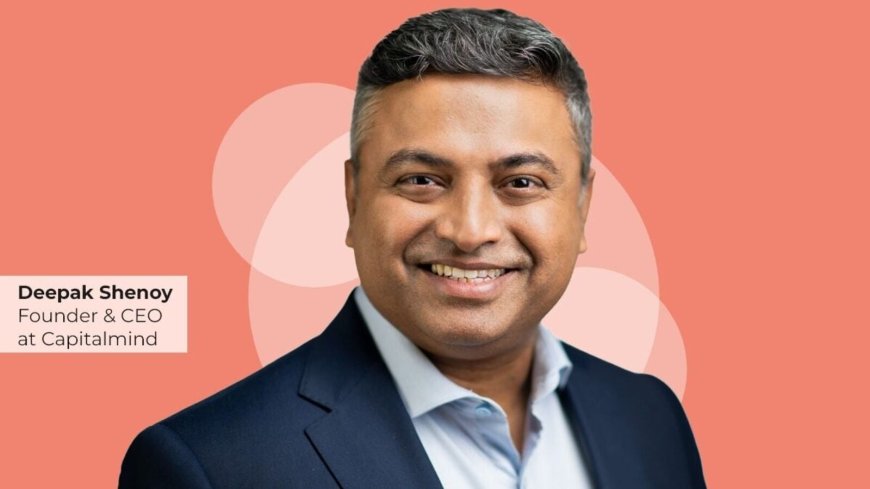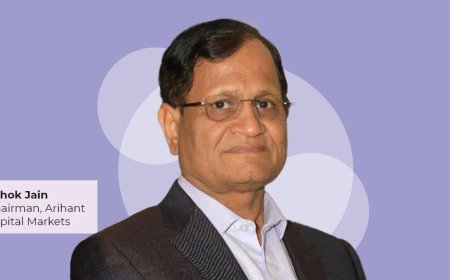Deepak Shenoy shares rationale behind flexi-cap NFO, top sectoral ideas & why it makes sense to have foreign stocks
Deepak Shenoy, founder of Capitalmind, explains the rationale behind the new Flexi‑Cap NFO—rule‑based stock selection, dynamic sector themes, and why modest foreign equity exposure makes sense in a long‑term portfolio.

Capitalmind founder Deepak Shenoy has unveiled the strategic thinking behind the newly launched Capitalmind Flexi Cap Fund, highlighting how a systematic, quantitative process and selective sectoral bets, alongside modest overseas allocation, aim to deliver superior long-term returns. Edited excerpts and analysis follow.
Why Add Another Flexi‑Cap Fund? Identifying the Gap
Despite a crowded market of flexi‑cap offerings, Shenoy explains that Capitalmind’s edge is process‑driven and objective. “We wanted flexibility because when data and times change, you cannot be wedded to one approach,” he said. As an asset manager coming from Portfolio Management Service (PMS) roots, the firm is now translating its back‑tested frameworks into a mutual fund. Instead of spotlighting individual stock picks, Shenoy emphasizes that “it’s the process that selects the stocks and the process that manages them.”
The fund is benchmarked to Nifty 500 TRI, ensuring broad coverage across large‑, mid‑, and small‑caps, and will operate a rule‑based active framework, adjusting both stock selection and allocations based on quantitative drivers.
Portfolio Dynamics: Process, Not Conviction
Shenoy clarifies that portfolio churn—monthly changes or even wholesale rebalancing annually—is not a sign of uncertainty, but a reflection of system feedback. “We don't change the stocks because of our conviction in them; we have conviction in the process,” he states. When the system identifies better candidates, it reallocates—consistent with disciplined rules rather than personal bias.
Sectoral Themes & Quant‑Driven Ideas
While Shenoy doesn’t list specific active stock calls, he lays out broad sectoral themes to watch, based on their quantitative frameworks. These include cyclical recovery plays, resilient financials, and tech‑driven businesses with strong cash flow profiles. The approach aims to capture cyclicality while managing volatility via sector diversification.
Why Include Foreign Stocks?
Addressing investor interest in international diversification, Shenoy recommends modest foreign exposure once portfolio size is meaningful. “Until then, India has enough to offer,” he notes. Still, global stocks—especially in developed economies—offer access to innovative sectors like semiconductors, biotech, and tech giants not adequately represented in Indian indices. For long‑term investors, that mix can reduce domestic concentration risk and enhance growth potential.
Market Backdrop & Timing
The Indian equity market has seen inflows into flexi‑cap funds surge: ₹31,500 crore flowed in during H1 2025 alone, reflecting investor preference for flexible multi‑cap exposure. Valuation metrics show large‑caps trading near long‑term averages, while mid‑ and small‑cap valuations remain elevated—requiring a discerning manager to dynamically shift exposures as conditions evolve.
New fund offers (NFOs) in this space are typically met with cautious optimism. Analysts like Chirag Muni of Anand Rathi flag the lack of historic performance—Capitalmind is a new fund house with no prior mutual fund track record. While the quantitative methodology is promising, many advisors suggest first evaluating performance over time before committing large sums.
Expert Commentary
“Capitalmind is a new entrant in the mutual fund space, with no existing track record… making it difficult to assess the fund’s potential risk or return,” warns Chirag Muni, Executive Director, Anand Rathi Wealth.
Another advisor highlights the broader landscape: most flexi‑cap funds already dominate flows, and many lean heavily into large caps. A balanced mix of dedicated large‑cap, mid‑cap and flexi‑cap schemes may offer better diversification.
Investor Outlook: Who Should Consider This Fund?
-
Long‑term investors (5–7+ years) seeking systematic exposure across market caps and willing to trust a quantitative process over discretionary stock picks.
-
Investors who value process discipline, especially during volatile cycles where sector rotation and risk control matter.
-
Those open to modest international exposure building global diversification into their portfolios as internal delivery scales.
Risks & Recommendations
Lack of historical data remains the biggest risk. NFOs are untested vehicles, even if backed by strong frameworks. Analysts suggest starting with a small allocation—perhaps via SIP—and monitoring early performance. Portfolio managers may also reassess asset mix depending on market regime shifts, regulatory changes or macro developments.
Capitalmind’s Flexi Cap Fund enters the market with a mission: marry quantitative, back‑tested logic with flexible asset allocation across caps and sectors. Complementing India‑focused equity exposure with measured overseas allocation further enhances its modern, global‑aware ethos. For investors willing to trust the process and ride through market cycles, it presents an intriguing option. Yet the lack of track record means prudent allocation and patience remain prudent virtues.
What's Your Reaction?
 Like
0
Like
0
 Dislike
0
Dislike
0
 Love
0
Love
0
 Funny
0
Funny
0
 Angry
0
Angry
0
 Sad
0
Sad
0
 Wow
0
Wow
0













































































